How North Korean People are Changing North Korea
Sometimes this issue seems hopeless. But we believe that all North Koreans can achieve their freedom in our lifetime. Here’s why.

For decades, the North Korean people have been deprived of their basic human rights and potential. The regime has maintained control through a system of imposed isolation, relentless indoctrination, and brutal repression, creating one of the most closed societies in the world. The result is an all-encompassing enforced poverty, including material, physiological, social, informational, artistic, and spiritual deprivations.
In 2014, the United Nations Commission of Inquiry on Human Rights in North Korea concluded: “The gravity, scale and nature of these violations reveal a state that does not have any parallel in the contemporary world.”
In recent years, the pandemic has triggered another increase in isolation, hardship and repression.
Despite these tremendous challenges, the North Korean people have made significant progress toward their own freedom. In the 1990s, North Korea’s socialist economy collapsed, triggering a devastating famine and leaving the people to fend for themselves. Bottom-up market activity is changing North Korea and forcing the gradual opening up of North Korean society.
> The History of North Korea in under 3 minutes
Marketization and Emerging Entrepreneurs
Once the people realized they could no longer rely on the government, they abandoned their defunct work units and turned to private market activities. From selling home cooked meals to running extensive trade businesses, North Koreans have become incredibly creative and resourceful to survive. The markets central to these activities are known as the “Jangmadang,” and to this day, North Korean refugees regularly report that life would be impossible without them.
> The Jangmadang Generation
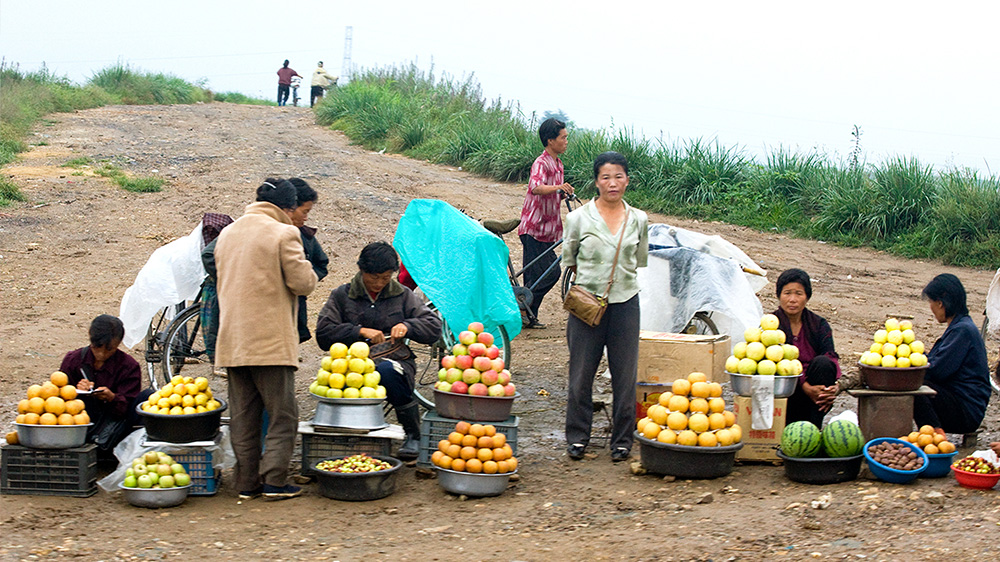
The famine forced people at all levels of society to find alternate ways to survive. Many government officials seized opportunities for camouflaged capitalism to enrich themselves personally. Even security officials accommodated the markets, accepting bribes to turn the other way and allow access to the Chinese border for trade. This corrupt state apparatus has further degraded the integrity and power of North Korean leaders.
Foreign Media & Info
The growing market economy has also created opportunities for foreign media and information to proliferate in North Korea.
First, the movement of people has significantly increased since the 1990s. Hundreds of thousands of North Koreans have now been outside the country for legal or illegal work and trade, in addition to refugees who were caught in China and forcibly repatriated. Observations from overseas are commonly shared through word of mouth and quickly spread through communities.
Additionally, new information technologies are increasingly available through the markets, making it easier to share and consume illegal foreign media. USB thumb-drives, SD and MicroSD cards, mobile phones, laptops and small portable media players are often loaded with foreign films, TV shows, and music that offer a glimpse of life outside.
> How Kpop is Challenging the Regime
Individual Agency & Independence
Since the collapse of the 1990s, the relationship between the North Korean people and the regime has been fundamentally changed. The people’s increasing economic autonomy has challenged the government’s centralized power and systems. Simultaneously, access to foreign media and awareness of life outside the country has eroded the legitimacy of the regime’s propaganda. The North Korean people have found opportunities to explore their potential, empowered to think and act independently of the regime.
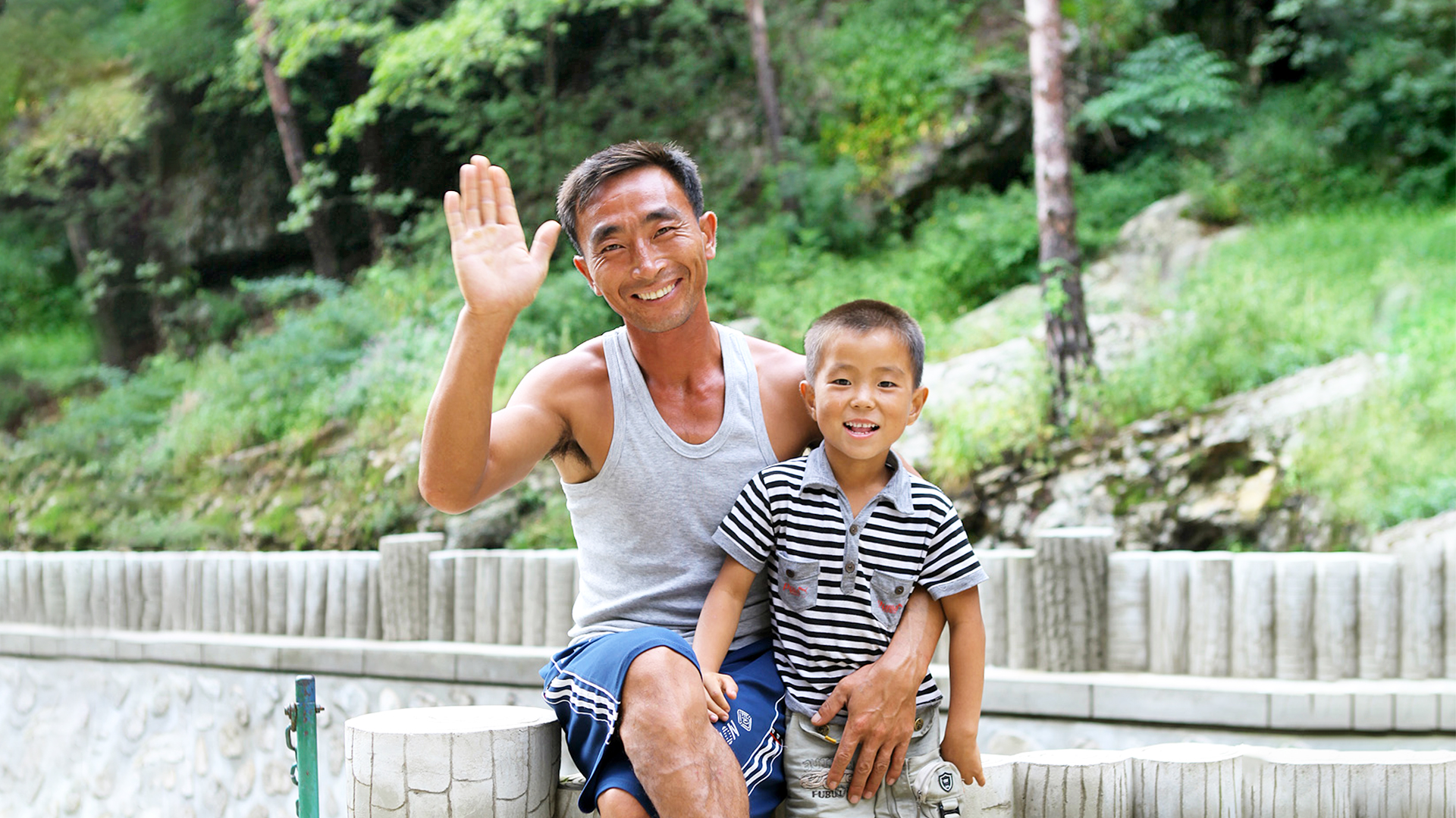
North Korean Defectors
As North Koreans gain both physical and psychological independence from the regime, some will risk their lives to escape and experience freedom. Since crossing the heavily fortified demilitarized zone directly to South Korea is nearly impossible, many refugees go north into China while escaping North Korea.
North Korean defectors who successfully resettle become some of the most effective agents of change on this issue. Many maintain contact with their home communities through broker networks and smuggled Chinese phones. They send money back to their families along with first-hand accounts of the outside world, accelerating both market activity and the flow of information.
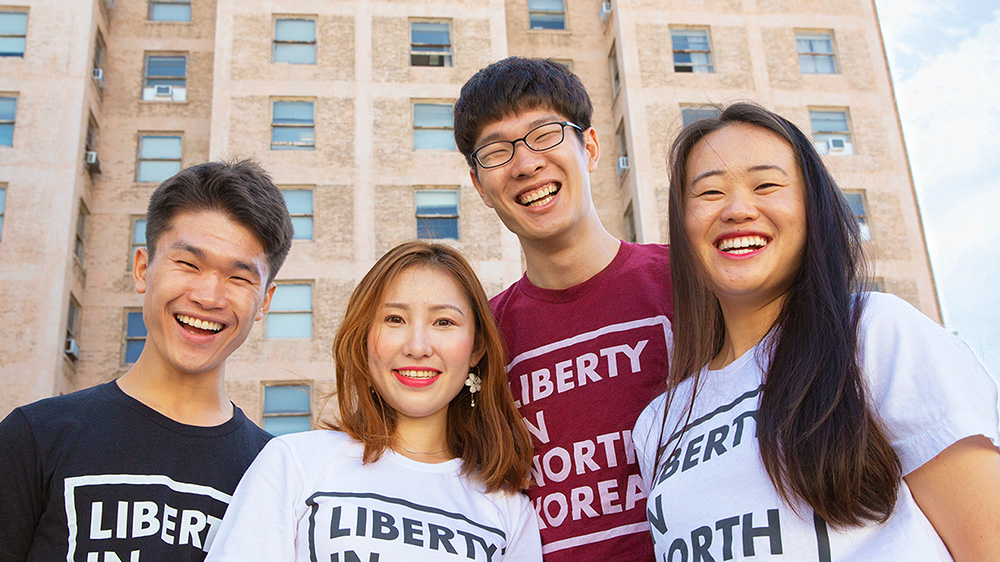
From the outside, North Korean refugees have the opportunity to share their stories on the international stage. Their personal accounts challenge the regime’s narrative of an unchanging and monolithic North Korea, instead highlighting the humanity and dynamism of the people. As they explore their potential in the free world, North Korean refugees increase the force of change through both internal and external influence.
> How A North Korean Defector Sends Money Back Home
Change from the Bottom-Up
While the situation in North Korea is changing, the government’s mastery in maintaining social control should not be underestimated. The regime’s response has ranged from crackdowns to tacit acceptance and reform. North Korean leader Kim Jong-un recognizes the trade-off between change and maintaining control, and has allowed limited marketization while cracking down on information flows.
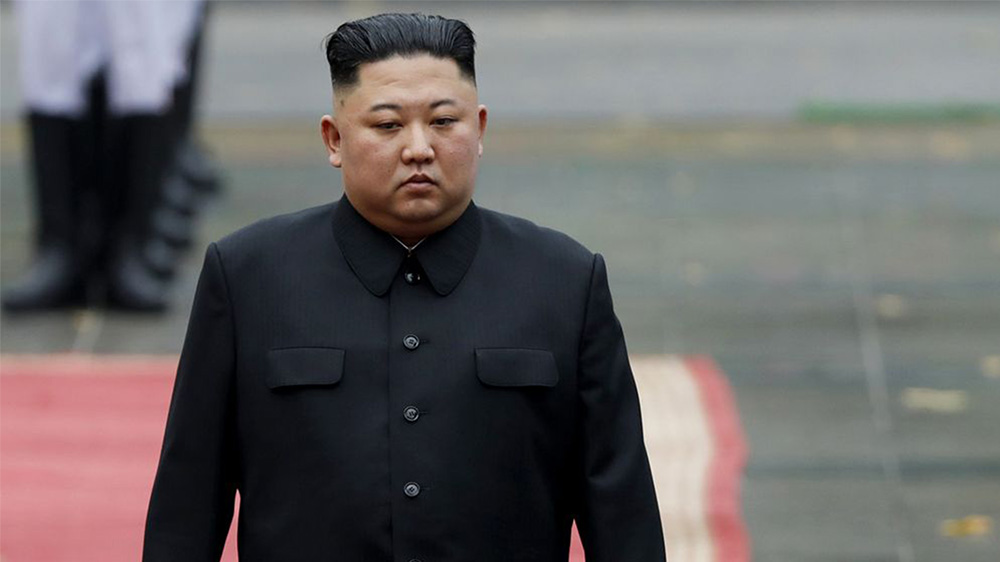
Ultimately, however, the sources of change can only be managed, not eliminated. As the North Korean people learn more about their relative poverty and the reasons for it, pressure will build on the government for economic reform. The less the North Korean people fear the outside world, the less effective the government’s threat narrative will be, and the less justified their massive investment into nuclear weapons will seem.
The regime will either need to adapt to change and allow opening of the country, or ultimately face the consequences of increasingly dissatisfied people.
It is important to note that progress in North Korea is a fluctuating process, as it is anywhere else in the world. During the pandemic, there has been increased isolation, retrenchment, and a limited outflow of people. The situation at hand is dire, but we can still be optimistic about long-term outcomes and an overall upward trend towards progress.
Liberty in North Korea
Our staff from North Korea, South Korea, and around the world, with our diverse movement of supporters and volunteers, is committed to bringing freedom forward for all North Korean people.
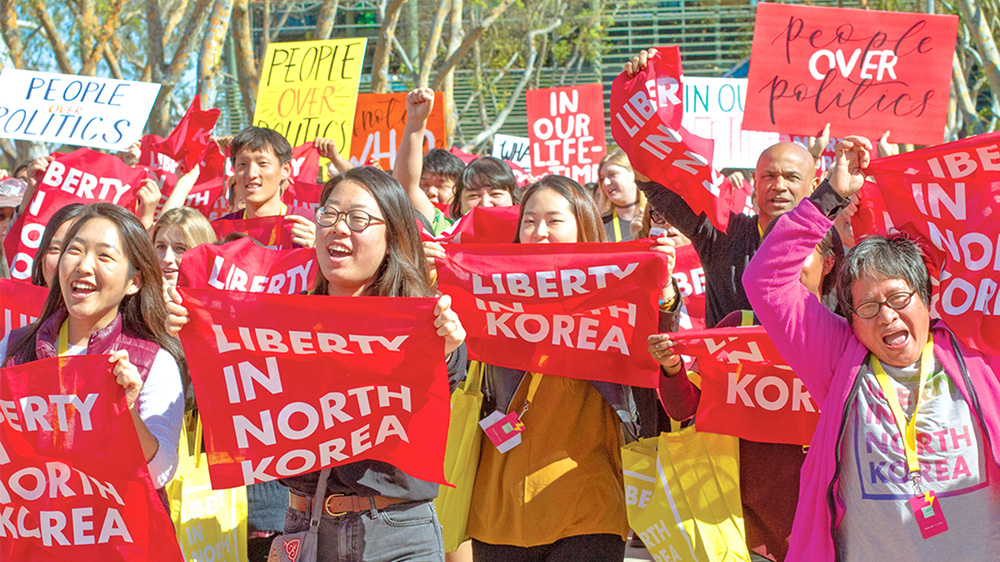
We’re engaged at multiple touchpoints of change:
- Helping North Korean refugees reach safety
- Identifying and empowering North Korean agents of change
- Mobilizing international support for the North Korean people
- Working with North Korean defectors to develop content and technologies that increase the people’s access to information
Our theory of change recognizes that change in North Korea has already started, and it is being driven by the people. One day, all North Koreans will gain their freedom and take full authorship over their lives. When that day arrives, we will know that we were a part of helping North Koreans in this incredible story of resilience and human progress against all odds.
A North Korean Father Risks Everything for Family | Doohyun’s Story
I lived in North Korea for over 20 years, and for much of that time, I believed my life was normal. I grew up in a big city by the river. When the wind blew, I could smell the water on the breeze, and on holidays, I played along the banks with my friends.
The river ran along the border between North Korea and China. I could see across the water into a different world–one where cars lined the streets, and buildings stretched high into the sky.
But I didn’t realize that life should be different, until the day they took my father away.
My father was a great businessman. He provided for our family despite being forcibly discharged from the military when his Minister of Defense was executed by Kim Il Sung. Labeled as a “traitor,” he was banned from decent jobs and opportunities.
Still, my father was a clever man and found success within the private market system that many North Koreans rely on to survive. Until one day, the police came to investigate him.

Without reason or warning, my father was arrested and imprisoned. They tortured him for a year. When he was released, my father weighed only 66 pounds.
Even after surviving the unimaginable, he was defiant. He wrote 20 pages of complaints to the Central Party about the human rights abuses he endured. My family was terrified of the consequences, but we couldn’t stop him. He fought for his voice to be heard.
On a warm Spring day, a Mercedes-Benz, license plate number 216, arrived at our home. February 16th was Kim Jong Il’s birthday, and cars with this number were only given to his closest aides. My father spoke with the man for hours about his letter. The man apologized and promised something like this wouldn’t happen again. This gave us a bit of hope for the future – for the possibility of change.

But the man left for Pyongyang. And then the police returned. I never saw my father again.
For two years, my family and I lived in unknowing agony, receiving no news on my father. Eventually, we heard from my father’s friend, who was a police officer, that he had passed away in prison.
At the very least, we wanted to send him off properly, so we asked that same friend how we could get my father’s body. Three days later, he returned. He told us they would not return my father’s body. My father had been sentenced to eight years in prison. He’d passed away after two. He still had six more years to serve – as a dead body. As a corpse.
For the first time I wondered whether this was the way normal people lived.

In 2009 I decided to escape from North Korea. Life had become near impossible for me after my father’s death, and I continued to face discrimination due to our family’s status in society.
By then, I had been married to my wife, Jiyeon, for two years. Most of our relationship before marriage was through the phone, because we lived far apart, and traveling in North Korea is difficult. So we called each other every night and talked for hours.
Now, I didn’t know if I was going somewhere she would never be able to reach. I told her it was a business trip. Two weeks. I’ll just be gone for two weeks.
She still cried at the train station, thinking about those two weeks. I couldn’t cry with her because then she would know the truth. So I boarded the train without a word, and watched it take me away from her.

From the moment I escaped North Korea, it felt like I was being chased by a grim reaper. There were multiple close-calls where I felt death breathing down my neck.
I was once hiding in a corn field near the Chinese border. Lying on my stomach, I watched soldiers patrol the area when suddenly, one of them walked towards me. It was too late to run or hide.
I had brought poison with me in case something like this happened - I knew it would be better to kill myself rather than be captured. But as I prepared to take the poison, I thought of my wife. I thought about how she would never know what happened to me.
In that moment of sheer terror, I heard the sound of water. The soldier stood right beside me but he hadn’t seen me. He had only walked over to relieve himself. For the next few minutes, I couldn’t move. The soldier had left, but my body held onto the terror of that moment. I remained hunched and hurried for the rest of the journey.

Eventually, I made it safely to South Korea. I started working as soon as possible – 12 hour days to pay back the broker fee, and save up money for my wife’s escape. My schedule was just working and sleeping, working and sleeping. It was hard, but for the first time in a long time, I had hope.
I was able to find a broker who put me in contact with my wife. It had been ten months since I’d defected at that point – ten months of her not knowing whether I was dead or alive. The call couldn’t be made in the city because the signal could be intercepted, so my wife and the broker hiked to the top of a mountain.
| When we heard each other’s voices again, all we could do was cry. But we didn’t have much time, and so I asked her, you’re coming, right?
She said she was.
On December 27th, 2011, Jiyeon crossed the river to escape North Korea on the same route that I took.

As soon as my wife arrived in South Korea, I went to meet her. I was so excited. I couldn’t stop crying. When my wife came into the room, she was crying too – but do you know what’s the first thing she did when she saw me?
She punched me – crying, calling me a liar. And I deserved it.
We live in Utah now with our two beautiful sons. We go fishing, camping, and enjoy the outdoors together. Every time I see them, I realize I’m living in a different world, one where we can finally dream and decide our own future.
This is the life I’ve made for my children. This is the life my father envisioned for me and for all North Koreans when he made his act of defiance. My father died fighting for his voice to be heard – and now, finally, he’ll be heard by the world.

Doohyun risked everything to create a future where his family could live together in freedom. Their story isn’t unique - there are many more North Koreans waiting and hoping for the day when they can reunite with loved ones. Help make freedom part of every North Korean’s story.
Give today
Since resettling in the United States, Doohyun has completed his undergraduate studies and now works for a North Korean human rights organization. He considers helping the North Korean people to be his life’s mission, continuing his father’s legacy.




